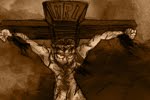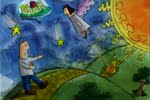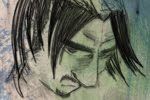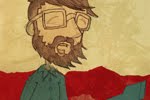He was neither saint nor priest but he is known to the world as a founder of Protestant Reformation. Before that there was no division in Christianity. First he was known as a folk hero then was known to world as the leader of Europe’s most famous revolution called reformations.
Objecting to the doctrines, rituals and ecclesiastical structure of the Catholic Church was not a small thing. He was called to the court of law where statement sent chilling waves in the backbone of Christian society. It muted almost everyone present there in the court. Luther becomes increasingly doubtful that the Church can actually offer him salvation at all. Wracked by despair, Luther finally finds release in the pages of the Bible, when he discovers that it is not the Church, but his own individual faith that will guarantee his salvation. That resulted in his excommunication by the pope and condemnation as an outlaw by the emperor but he somehow managed to escape. Many German kings who were impressed of his thinking gave shelter to him. Slowly his followers started to increase by numbers and at last a new sect came into being in Christian religion which is still in practice.
As a founder or representative of new church, he was a staunch believer of Baptism. He strongly opposed the life style of priests instilled by Catholic Church. He said marriage is not a sin instead it is as necessary as food. He helped many nuns escape from the Nimbschen Cistercian convent in April 1523, when he arranged for them to be smuggled out in herring barrels. He married to Katharina von Bora one of those 12 nun’s he helped. He wrote to Wenceslaus Link, "The Lord has plunged me into marriage." Katherine was 26 years old, Luther was 41 years old.
Luther had written to George Spalatin on 30 November 1524, "I shall never take a wife, as I feel at present. Not that I am insensible to my flesh or sex (for I am neither wood nor stone); but my mind is averse to wedlock because I daily expect the death of a heretic." Before marrying, Luther had been living on the plainest food, and, as he admitted himself, his mildewed bed was not properly made for months at a time.
Martin Luther nailed his Ninety-Five Theses on the Power and Efficacy of Indulgences to the door of the Castle Church, in Wittenberg. The theses debated and criticized the Church and the Pope, but concentrated upon the selling of indulgences and doctrinal policies about purgatory, particular judgment, Catholic devotion to Mary, Jesus’s Mother, the intercession of and devotion to the saints, most of the sacraments, the mandatory clerical celibacy, including monasticism, and the authority of the Pope.
His parents were very religious people. His father worked in a mine and was very strict to Martin. Due to which his childhood days were never so remarkable to him. They were very poor that they had to live in a same room. He was not fond of studies. His father, Hans Luther was ambitious for himself and his family, and he was determined to see Martin, his eldest son, become a lawyer. In accordance with his father's wishes, Luther enrolled in law school at the same university that year but dropped out almost immediately, believing that law represented uncertainty. Luther sought assurances about life and was drawn to theology and philosophy, expressing particular interest in Aristotle, William of Ockham, and Gabriel Biel.
Philosophy proved to be unsatisfying, offering assurance about the use of reason but none about loving God, which to Luther was more important. Reason could not lead men to God, he felt, and he thereafter developed a love-hate relationship with Aristotle over the latter's emphasis on reason. For Luther, reason could be used to question men and institutions, but not God. Human beings could learn about God only through divine revelation, he believed, and Scripture therefore became increasingly important to him.
He later attributed his decision to an event: on 2 July 1505, he was on horseback during a thunderstorm and a lightning bolt struck near him as he was returning to university after a trip home. Later telling his father he was terrified of death and divine judgment, he cried out, "Help! Saint Anna, I will become a monk!" He came to view his cry for help as a vow he could never break. He left law school, sold his books, and entered a closed Augustinian friary in Erfurt on 17 July 1505
In 1512, he did his PHD in religious studies and challenged the doctrines and then current practice of Catholic Church through his teachings, beliefs, research and literature thus giving rise to a new sect called Protestants.
Martin Luther escaped martyrdom, and died of natural causes. His last written words were, "Know that no one can have indulged in the Holy Writers sufficiently, unless he has governed churches for a hundred years with the prophets, such as Elijah and Elisha, John the Baptist, Christ and the apostles... We are beggars: this is true."












